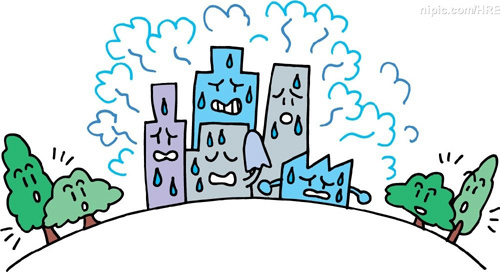(Ecns.cn)--"During the past century, China's average temperature has increased by 1.1 degrees Celsius, higher than the average global rise," said Xu Ying, researcher at the National Climate Center, in a recent event organized by the China Academy of Science and Technology.
According to Xu, data for annual average temperature changes from 1961 to 2009 showed that the recent half century has witnessed a temperature rise in most parts of the country, with North China experiencing the sharpest increase.
The Annual Report on Climate Change Actions (2009) predicts that by 2020 China's average temperature may be 1.2 to 2.0 degrees Celsius higher than the last two decades of the 20th century. By the end of the 21st century, the temperature may grow by 2.2 to 4.2 degrees Celsius.
The nationwide distribution of rainfall has also seen obvious changes.
Xu said from 1959 to 2009, precipitation in the west increased by 15% to 50%, while the east has been suffering from frequent floods in the southern areas and droughts in the northern parts.
"In the future, precipitation in North China will be higher than that in the south," added Xu. The nationwide precipitation is expected to increase by 2% to 5% by 2050, and 6% to 14% by the end of the 21st century.
Furthermore, extreme climate events began to attack China more frequently and violently. Since 1998, more consecutive "high temperature days" of over 35 degrees Celsius have hit China.
According to the Annual Report, the upper reaches of the Yangtze River will experience more torrential rains, causing landslides and mudslides that will affect the hydropower plants and shipping in the Three Gorges Reservoir.
Due to the disastrous weather, food production will also suffer increasingly severe fluctuations, said experts, adding that without proper preventive measures, the farming industry's yields may drop by 5% to 10%.


















